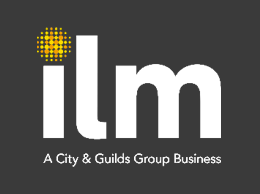Middle managers occupy a uniquely challenging position within any organisation. Sandwiched between senior leadership and frontline employees, they are expected to execute strategic directives from above while managing the day-to-day operations and concerns of their teams. This dual responsibility often places them in a difficult balancing act, leading to stress, burnout, and role ambiguity. However, with the right strategies, middle managers can not only survive but thrive in their roles.
Key Challenges
Conflicting Expectations
Middle managers must align with upper management’s goals while also advocating for their team’s needs. These expectations can sometimes conflict, leaving managers feeling torn between loyalty to leadership and empathy for their staff.
Limited Authority, High Accountability
While middle managers are held accountable for team performance, they often lack the authority to make significant decisions or influence broader organisational strategy. This can lead to frustration and a sense of powerlessness.
Communication Bottlenecks
Acting as a conduit for information, middle managers must ensure that messages from leadership are clearly communicated to their teams—and vice versa. Miscommunication or lack of transparency can lead to confusion and disengagement.
Change Management Fatigue
Middle managers are frequently tasked with implementing organisational changes, often without adequate support or resources. Repeated change initiatives can lead to fatigue and resistance, both for the manager and their team.
Career Stagnation
Many middle managers find themselves stuck in a career plateau, unsure of how to progress to senior leadership roles. This can lead to disengagement and decreased motivation.
Strategies for Improvement
Develop Strong Communication Skills
Clear, consistent, and empathetic communication is essential. Middle managers should strive to be transparent with their teams while also providing constructive feedback to leadership. Active listening and emotional intelligence are key assets.
Build Influence, Not Just Authority
Even without formal power, middle managers can build influence by fostering trust, demonstrating competence, and cultivating relationships across departments. Being seen as a reliable and solutions-oriented leader can open doors to greater responsibility.
Invest in Leadership Development
Continuous learning is crucial. Middle managers should seek out training in areas like conflict resolution, strategic thinking, and coaching. Mentorship—both giving and receiving—can also provide valuable perspective and guidance.
Prioritize Team Empowerment
Delegating effectively and empowering team members to take ownership of their work not only boosts morale but also frees up time for managers to focus on strategic tasks. Recognising and celebrating team achievements can also enhance engagement.
Advocate for Resources and Support
Middle managers should not hesitate to voice their needs to senior leadership. Whether it’s additional staffing, better tools, or clearer direction, advocating for what’s necessary to succeed is a sign of strong leadership.
Here at Futureproof, we appreciate that the role of a middle manager is undeniably complex, it also offers a unique opportunity to drive impact at multiple levels of an organisation. But by embracing continuous growth, fostering strong relationships, and advocating for both their teams and themselves, middle managers can transform challenges into stepping stones for success.
Get in touch at info@futureproof-training.co.uk to discuss what development opportunities we can offer to your middle managers.






